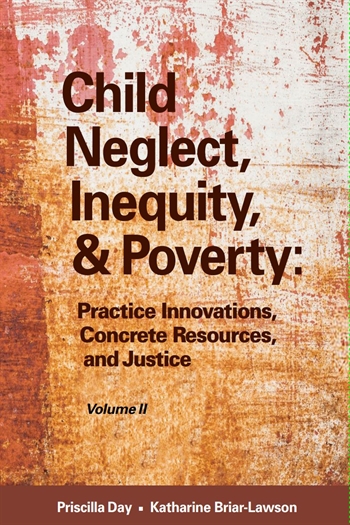
CWLF Published a Chapter About Our Service Program in the Book 'Child Neglect, Inequity, & Poverty'
CWLF is pleased to be invited by our valued partner Child Welfare League of America (CWLA) to contribute to one of the chapters in their newly published book titled Child Neglect, Inequity, & Poverty: Practice Innovations, Concrete Resources, and Justice.
In this chapter titled Family-Centered Support Service Program for Children in Rural Areas in Taiwan, we elucidate the development, contributions, and challenges of our service program in rural areas over the past 15 years. This program focuses on community-based services, integrating resources from local elementary schools, communities, and neighborhoods to collectively support families. To create a nourishing environment for children, CWLF social workers provide intervention services through a family-centered approach, offering diverse and flexible assistance to help families deal with complex life challenges, such as caregivers’ physical and mental health issues, household clutter, poor housing conditions, and family conflicts.
With the Convention on the Rights of the Child (CRC) as the core value of our services, we support the physical and mental development of children in these five aspects: basic living needs, the ability to learn and think, creativity, social participation, and emotional exploration. We provide basic living necessities, financial assistance, and after-school care to meet children’s basic living needs and promote their health. We also empower children by engaging them in activities regarding extracurricular learning, career exploration, and emotional awareness. Through these activities, children gain holistic development in learning abilities, problem-solving skills, and emotional self-care practices. Through these efforts, children from disadvantaged families are empowered to overcome external challenges and expand their horizons by learning new skills and talents. By fostering creativity and diverse perspectives, we aim to help them envision and pursue brighter futures
We also discuss a variety of challenges this program has been facing in recent years, especially in the context of declining birthrates, including the digital divide, culture differences, a shrinking child population, service overlaps, etc. Finally, we propose some future directions for responding to the challenges and transforming the program.
To learn more about the Child Neglect, Inequity, & Poverty book, please visit https://tinyurl.com/2jcwksch
Please support us to create a better environment for children to thrive: https://www.children.org.tw/english/donate


